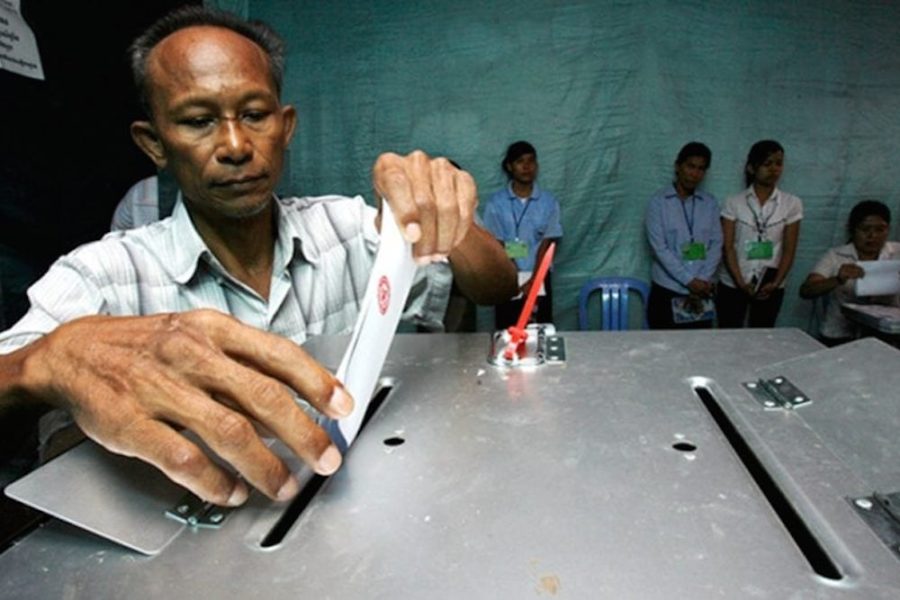The two biggest political parties in the upcoming commune election have just 26 and 23 percent women candidates, continuing a struggle to field more women for political positions in the country.
The National Election Committee last night issued the results of its three-day candidate-registration drive, showing that 17 parties had registered 82,786 candidates — 25,963 of them women.
The ruling CPP is fielding 28,000 candidates in all of the country’s 1,652 communes, while the Candlelight Party — formerly the Sam Rainsy Party — registered 23,357 candidates in 1,632 communes, according to the NEC. The Candlelight Party previously said that it had candidates for all but three communes.
Royalist parties Funcinpec and the Khmer National United Party also put forward sizable contingents at 9,055 and 8,028 candidates in 688 and 617 communes, respectively.
However, in 2017, Funcinpec won no commune chief seats and 28 councilors, while KNUP had one commune chief elected in Banteay Meanchey and 24 councilors.
Meanwhile, the percentage of women candidates stood at 31 percent overall — up slightly from 27 percent in 2017.
This ranged from 19 percent for the Cambodia Indigenous People’s Democracy Party to 53 percent for the Khmer United Party, both minor parties contesting fewer than 40 communes each.
The CPP has 26 percent women candidates and the Candlelight Party 23 percent. In 2017, the two top parties at the time — the CPP and now-outlawed opposition CNRP — both had less than 25 percent women candidates, according to NGO Cedaw. Just 128 women won commune chief seats, or 7.8 percent.
Candlelight Party deputy president Thach Setha said on Tuesday that the low number of women candidates was not intentional.
“It is not party policy. It is just that when we selected them, we got 23 percent,” Setha said. “We did not prioritize men, we also wanted women to participate.”
However, Setha said women were scared to run for an opposition party, and the party had many total candidates so it was difficult to find enough women.
“Comparing to another party that has only one or two hundred is impossible because we have hundreds of thousands of people, and 23 percent is not little,” he said.
Setha added that women candidates were receiving a $300 bonus to encourage them to run.
CPP spokesperson Sok Eysan could not be reached on Tuesday.
Among the parties with relatively large numbers of women candidates is Kong Monika’s Khmer Will Party, which is fielding 962 candidates of which 49 percent are women.
The party valued women, as seen by its logo of the Banteay Srey temple in Siem Reap, representing women, Monika said. “So we focus on placing women candidates on the election lists to promote and encourage them to participate in the political sector more and more.”
He said at least 20 percent of the party’s women candidates were at the top of its commune lists and were in the running for commune chief. However, 20 percent of the party’s 476 registered women candidates, at 95, is more than the 65 communes the party is standing for.
Monika added that the party’s women candidates have been facing threats to back out of the elections. “The party is working on this issue,” he said.
This was story was updated on March 9, 2022, to correct Thach Setha’s position at Candlelight Party.












